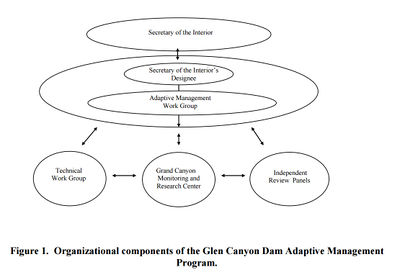Difference between revisions of "Science Advisors"
Cellsworth (Talk | contribs) |
Cellsworth (Talk | contribs) |
||
| Line 239: | Line 239: | ||
*"We need a science that empowers decision makers to develop a comprehensive vision of how a future Colorado River can function." | *"We need a science that empowers decision makers to develop a comprehensive vision of how a future Colorado River can function." | ||
*"We have the ability to recreate any kind of a river we want. We just have to decide what we want and where we want it, and to decide if we want to pay for it.(JSchmit_SDM-workshop_Aug 2013) | *"We have the ability to recreate any kind of a river we want. We just have to decide what we want and where we want it, and to decide if we want to pay for it.(JSchmit_SDM-workshop_Aug 2013) | ||
| + | |||
| + | *Although meta-analysis is a useful way of summarizing knowledge, the strength of inference depends on the quality of the data, and cause-and-effect cannot be established solely from | ||
| + | correlative analyses. [https://pubs.er.usgs.gov/publication/70187999] | ||
Revision as of 15:45, 12 July 2018
|
|
Science AdvisorsIndependent Review Panels, as called for in the Glen Canyon Dam Environmental Impact Statement (Reclamation 1995:38), are comprised of qualified individuals not otherwise participating in the long-term monitoring and research studies. The panels include peer reviewers, science advisors, and protocol evaluation panels whose primary responsibility is to assess the quality of research, monitoring, or science being conducted by the Adaptive Management Program and to make recommendations to improve it. Responsibilities of the panels include:
|
| Justification -- |
Scope -- |
Organization -- |
|---|
|
